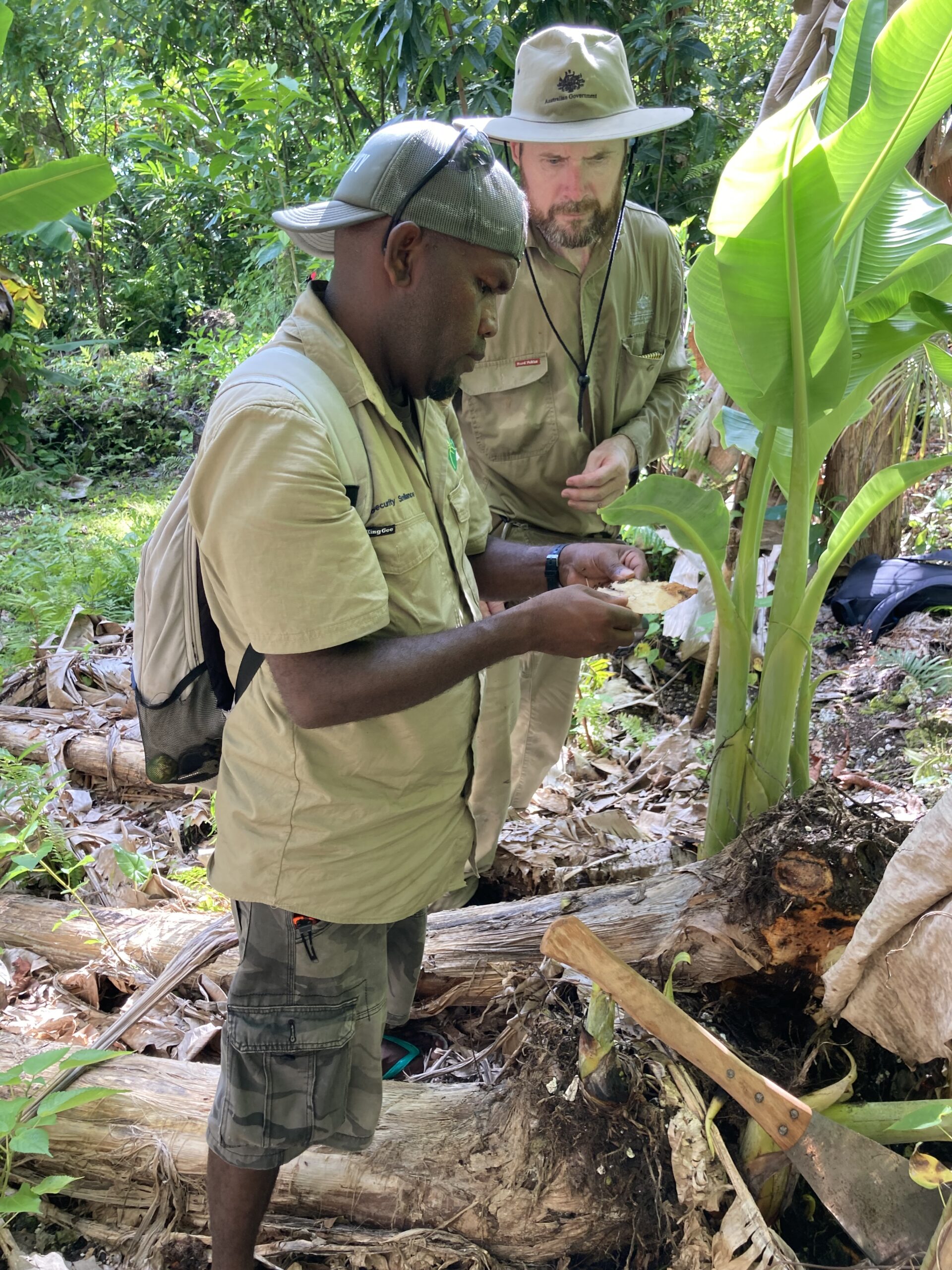
Solomon Islands and Australia have worked side by side for over a decade to strengthen Solomon Islands’ agriculture and biosecurity systems.
We share similar tropical climates and challenges in developing our agriculture sectors and export markets, as well as managing similar biosecurity risks. We are natural partners who can learn a lot from each other.
Investing in agriculture and biosecurity is critical for Solomon Islands. It helps drive economic growth, creates jobs, especially in rural communities, and safeguards food security for a growing population.
The Solomon Islands Government is prioritising increasing agricultural productivity and exports to support economic growth, particularly in rural areas where most people live, and Australia is supporting the Government in that effort.
The Solomon Islands – Australia biosecurity partnership is trying to prevent the introduction and spread of harmful plant pests and animal diseases, such as African Swine Fever, Coconut Rhinoceros Beetle, and Foot and Mouth Disease while responding to exotic plant pests, and animal disease detections, and facilitating agricultural trade and market access opportunities.

Participants from the public and private sectors attended the Export Pathway Operational Training in Honiara in October 2024. This proactive training helps industry groups to take advantage of existing markets in Australia, New Zealand, and other export markets: Credits Australian High Commission Media.
Australia is working with the Ministry of Agriculture and Livestock and Biosecurity Solomon Islands to develop comprehensive plant pest and animal disease lists to confidently negotiate and maintain market access for key agricultural export commodities such as kava, cocoa, timber, coconuts, and fish.
Australian and Solomon Islands officers have also conducted plant and animal health surveillance in the provinces to identify new pest incursions so the emergency response can be mobilised to control and eradicate these risks, if possible. These pests would risk Solomon Islands’ access to export markets if they weren’t stopped which hurts exports and economic growth.
Maintaining and expanding agricultural export markets benefits and empowers rural communities and helps them to become more resilient to the challenges posed by climate change. I am excited by the growing number of fresh and processed agricultural products that Solomon Islands can now export to Australia. These products include fresh cassava, yams, fresh, mature, and drinking coconuts, cocoa beans and pods, fresh pineapples (de-crowned), and a whole range of value-added products. While I also recognise that some of these export pathways are not currently being utilised, they provide an opportunity for future growth.

We’ve taken a proactive approach in exploring these opportunities and we have funded the in-country role for Mr Tanuvasa Semy Siakimotu, our Biosecurity Adviser from Australia’s Department of Agriculture, Fisheries and Forestry, who is working closely with Ministry of Agriculture and Livestock and Biosecurity Solomon Islands. Together, we are building agricultural trade and market access capacity through technical support activities in close collaboration with other Australian programs like PACER Plus, PHAMA Plus, and Strongim Bisnis.
Managing exports is comparable to resolving a complex puzzle. Every element is crucial, ranging from quality of supply, handling and storage, meeting quality standards, to accessing linkages to markets, branding and market compliance and promotion. Connecting all the pieces unlocks opportunity, creating sustainable and inclusive incomes for communities all around this beautiful nation.
The Solomon Islands – Australia Biosecurity Partnership recently delivered the Pacific Export Pathway Operational training from 21-25 October 2024 to promote understanding and enhance compliance with importing country requirements. This proactive training helps industry groups to take advantage of existing markets in Australia, New Zealand, and other export markets.
I want to acknowledge the strong personal and professional relationships that have been forged between Australian and Solomon Islands biosecurity officers and agricultural policy makers since 2013. These relationships are the backbone of our collaboration, and give me great hope for the strength of our partnership going forward As we begin 2025, I look forward to exciting new opportunities and expanded collaboration on agricultural development and biosecurity.
Lukim iu neks taem!




















